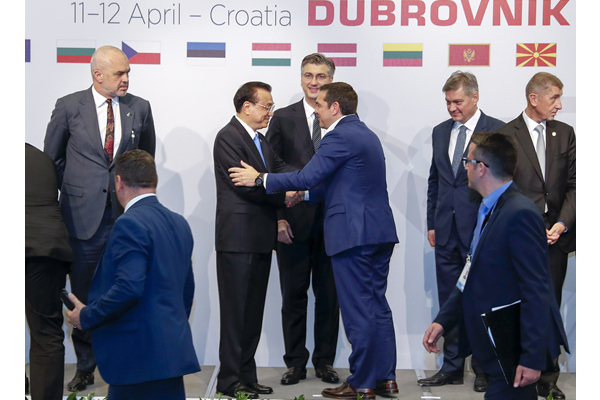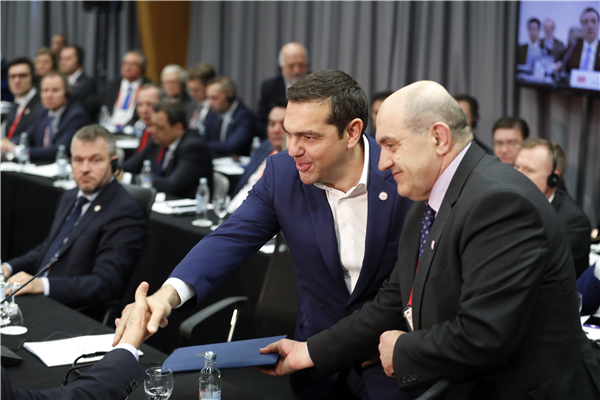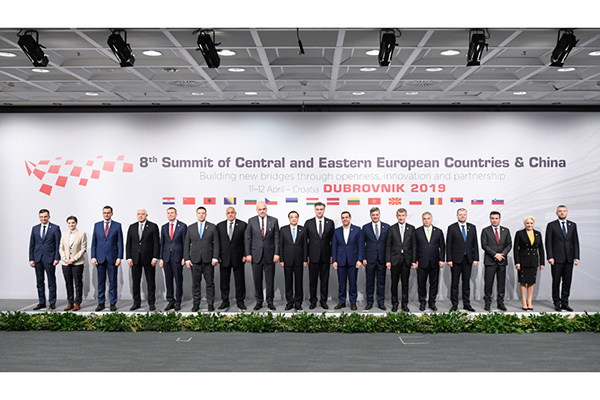
The “16+1 Cooperation” is becoming more attractive, as Greece has officially joined the group. No matter that the name “16+1” will be changed, it is actually “17+1”.
Greece became the new member of the “16+1” at the eighth leaders meeting between China and Central and Eastern European Countries, or CEECs in Dubrovnik, a coastal city of Croatia, on April 12.
Greece has expressed many times its willingness to join the “16+1” out of its geographic location and development needs, and has received support from the 16 member countries.
Apart from Greece, which is now aboard, some other countries also seek to join the group.
According to the Dubrovnik Guidelines, which were issued after the meeting, “the 16+1 Cooperation has proved to be a pragmatic and useful platform for promoting cooperation between China and CEECs”.
The momentum of “16+1 Cooperation” is explicit in data: Trade volume between China and CEECs grew by 21 percent against the global trend last year, a record high; CEECs’ exports to China increased about five times in the past years.

“China and Central and East European countries share a similar development level. We can make use of our complementary advantages,” the Premier said during a meeting with the press.
On the Dubrovnik Guidelines, Premier Li said it is “consistent” with the China-EU joint statement. The guidelines stated that the “16+1 Cooperation constitutes an important part of the Europe-China relationship” and “the participants support the early conclusion of an ambitious EU-China Comprehensive Agreement on Investment”.
The words echo the China-EU joint statement that was signed on April 9 at a leaders’ meeting. It said, “The two sides commit to achieve in the course of 2019 the decisive progress required, notably with regard to the liberalization commitments, for the conclusion of an ambitious China-EU Comprehensive Investment Agreement in 2020.”
The “16+1 Cooperation” is beneficial to European integration and the development of the China-EU relationship; promoting “16+1 Cooperation” is an important step in implementing the China-EU joint statement, the Premier said.
Looking back at the development of “16+1”cooperation, it did originally concentrate on those areas that are naturally suitable for cooperation, such as CEECs’ high-quality agricultural products and China’s experience and strength in infrastructure construction. With the platform growing, cooperation areas are expanding and cooperation is deepening.
Premier Li said at the opening ceremony of the 9th Business Forum of CEECs and China that China is willing to strengthen innovative cooperation with CEECs, especially innovative cooperation on SMEs, which conforms to the background of the new round of industrial revolution.

In the official meeting following, the Premier reaffirmed that facing a new round of industrial and scientific revolution featuring digital economy and artificial intelligence, China is willing to adapt to this trend with CEECs to promote cooperation in the field of innovation, and make cooperation focus on not only ordinary products, but also products with innovative value.
During the bilateral meetings with prime ministers of different countries, Premier Li exchanged ideas with them on cooperation in forward-looking fields, including e-commerce, joint universities and telecommunication construction.
Premier Li’s proposals received positive responses from leaders of the participating countries. Their speeches also unleashed a clear signal full of enthusiasm to continue to expand and deepen cooperation in more areas.
Read through the Dubrovnik Guidelines for Cooperation between China and Central and Eastern European Countries, it is indeed rich in content, ranging from trade and investment cooperation, financial cooperation, education cooperation, sci-tech innovation cooperation to people-to-people exchanges. It means China and CEECs will add at least 30 cooperation mechanisms and leaders of those countries showed their active attitude toward it.
